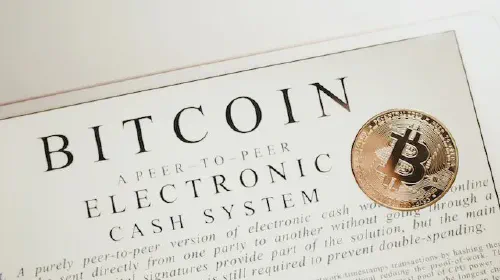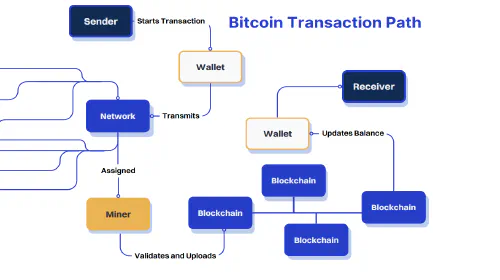Understanding Dead Wallet Addresses in Cryptocurrency - Definition and Impact
Salomon Kisters
Jun 6, 2023This post may contain affiliate links. If you use these links to buy something we may earn a commission. Thanks!
Imagine walking down the street and suddenly discovering your wallet is missing. You frantically search your pockets and baggage as panic creeps in and you cannot find it anywhere. Imagine a similar situation, but this time you’ve lost access to your cryptocurrency wallet rather than your real wallet.
If you have been in this run of cryptocurrency, you must have heard the term “dead wallet” but are unsure what it means. Today, we’ll discuss what a dead wallet address is and how long a wallet address lasts until it expires.
So without further ado, let’s dive right in!
Possible Reasons behind a Dead Wallet Address
An address for a cryptocurrency wallet that is no longer operational or usable for any transaction, including receiving and transferring money, is known as a “dead wallet address”.
Despite the indestructible nature of blockchains, a cryptocurrency wallet might stop working for several reasons, including incorrect information being used when it was created, the loss of private keys, a long period of inactivity, or the death of the owner. Cryptocurrency is well known for its decentralized network and privacy. It is so secure that no one can even access the wallet if the private case is locked.
Null Address, Vanity Address, and Dead Address
Before we move on, we need to clarify the difference between null, vanity, and dead addresses. Typically, null addresses are made to burn tokens to allow the Proof of Burn (PoB) process. Token burns naturally occur when tokens are transmitted to invalid addresses or unstable wallets on purpose to eliminate such data from circulation.
A vanity address, in contrast, is a unique encrypted wallet address made from the user’s preferred letters and numbers. A vanity address distinguishes your wallet from others, while a standard address is merely a random collection of letters and digits.
Lastly, dead wallets are termed so because they might contain dead coins. Dead coins are cryptocurrency tokens that have been left unattended for a long time, used in scams, have a broken website, have no nodes, have wallet troubles, no social media updates, non-existent traffic, or developers who have given up on the project altogether.
Coin Buring and Dead Wallet Addresses
When a specific quantity of cryptocurrency tokens is claimed to have been “burnt”, it indicates they have been taken out of active circulation. Simply transferring the tokens to a “dead wallet” will accomplish this. And once transferred to such wallets, these tokens cannot be accessed or retrieved by anyone.
But the question arises: why would creators destroy their cryptocurrency?
Following the simple law of demand and supply, a cryptocurrency may experience a low price when the total number of tokens in circulation exceeds its demand. In this case, a ‘deflationary’ action would be needed to burn some of the cryptocurrency in the total supply. The price of the remaining tokens in circulation will automatically increase as the token’s scarcity increases.
Users must stake their currencies using the Proof-of-Stake (PoS) consensus in order to serve as network validators. The staked coins, however, are transferred to a dead wallet, where they become inaccessible and useless. Your likelihood of becoming a validator, as a result, increases as more coins are burned.
Dead Projects and Dead Wallet Addresses
We have already discussed some reasons behind dead wallet addresses, but dead crypto projects or failed wallet companies also contribute to the existence of a significant number of dead wallets in the market. Following are some major reasons that lead to dead projects.
Abandonment and Low Trading Volumes
Since the launch of Bitcoin in 2009, there has been a surge seen in the number of other cryptocurrencies and blockchain projects hitting the market. One of the drawbacks of the growing popularity of cryptocurrencies is that several wallets exist in the crypto space, but are considered either lost or dead. Many crypto wallets fail to stand the test of time, either because of the abandonment or loss of private keys, ICO failure, or just the usual ups and downs of the market.
Research shows that almost 20% of all Bitcoin is lost in dead wallets. Due to a low trading volume, more than 2,400 coins died in the previous ten years.
Scams
The phrase “pig-butchering” may have come up in cryptocurrency frauds. In such circumstances, a scammer lures a possible victim, whom he invites to invest in cryptocurrency or a crypto project. First, the scammer gains the victim’s trust by convincing them to invest in a reputable cryptocurrency.
The scammer pressures them to convert their funds into crypto and transfer them to a certain wallet on a trading platform. When the victim has put enough money into it, the scammer converts the crypto into fiat currency and withdraws the funds, killing the wallet and leaving all its addresses dead.
One of the most famous recent crypto scams was the Squid Game Scam. As it turns out, the release of the popular Korean Netflix series Squid Game in 2021 gave con artists the opportunity to create a lucrative cryptocurrency fraud that has cost its victims a total of $16 million.
Failed Funding
Over the past few years, several crypto projects have failed due to insufficient funding. This happened specifically in the case of the 2017 ICO Bubble, when we saw a dozen new crypto tokens emerging almost every day. However, only some of these were developed enough or had strong fundamentals to stand the test of time. The rest disappeared within a year, due to various reasons, with failed funding and insufficient funds being the common-most factor.
Is it Possible to Recover a Transaction Made to a Dead Wallet Address?
The simple nature of a dead wallet address makes it impossible to recover or revive the lost crypto tokens sent to them. However, you can avoid the situation in the first place by making sure that you’re using the correct wallet address at the time of transactions.
As far as retrieving the coins from lost or dead wallets, you need to check if the service or platform you used to make a transaction can assist you in recovering your funds. Some businesses allow you to give them a certain number of coins in order to access your account using their coin recovery service.
Apart from these solutions, there is no other way to revive dead wallets. The so-called crypto hunters’ efforts to recover lost funds by “breaking into” digital wallets yield disappointing results. They share a minimal success record with their crypto-hypnotist competitors, who claim to hypnotize clients into memorizing keys. Therefore, the transaction made in a dead wallet address is best forgotten.
The Afterlife of Dead Wallet Addresses
Cryptocurrency wallets use cryptography to protect digital assets. They contain a private key, which serves as an immutable password. When a wallet is created, the private key and wallet address are both generated. The only way to verify ownership and create the wallet is through this code, which appears to be a collection of random characters.
Other than the owner, no one can possibly access locked funds because of encryption. This is a significant benefit of cryptography, but it works as long as the coin’s owner is still alive. The coins will remain locked in that wallet forever if a private key has not been saved or retrieved.
If you store your coins in a non-custodial wallet or on a crypto exchange, make a note of the login information, passwords, and private keys. Securely store them offline to prevent leaks or hacks.
Concluding Thoughts
As the blockchain industry continues to evolve, crypto platforms are trying to develop solutions for the recovery of dead wallets while upholding the security and protection of investors’ funds.
To sum up, dead wallet addresses are standard in the cryptocurrency sector and can have significant consequences for investors and the market at large. Dead addresses can be purposefully generated to affect market sentiment or hide illegal activities, while some are merely the result of lost or forgotten private keys.
You need to be alert to potential risks as the cryptocurrency market continues to develop and mature. For now, when a wallet is considered dead, it means that the funds stored in it are effectively lost and cannot be recover
Stay informed with the latest insights in Crypto, Blockchain, and Cyber-Security! Subscribe to our newsletter now to receive exclusive updates, expert analyses, and current developments directly to your inbox. Don't miss the opportunity to expand your knowledge and stay up-to-date.
Love what you're reading? Subscribe for top stories in Crypto, Blockchain, and Cyber-Security. Stay informed with exclusive updates.
Please note that the Content may have been generated with the Help of AI. The editorial content of OriginStamp AG does not constitute a recommendation for investment or purchase advice. In principle, an investment can also lead to a total loss. Therefore, please seek advice before making an investment decision.

Satoshi Nakamoto's Wallet Address - Genesis Block Bitcoin Address
Satoshi Nakamoto's wallet address is the genesis Bitcoin address that holds 50 BTC mined from the Genesis Block, which are not spendable. Learn more about the first block in the Bitcoin blockchain.

How to Create a Bitcoin Blockchain Address: A Step-by-Step Guide
Discover the process of generating a Bitcoin blockchain address through our detailed step-by-step tutorial. Get started with cryptocurrency now!

How to View the Activity of a Bitcoin Address
In this article, we'll guide you on how to check the activity of your bitcoin address so that you can monitor transactions across the blockchain. Let's go.
Protect your documents
Your gateway to unforgeable data. Imprint the authenticity of your information with our blockchain timestamp